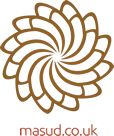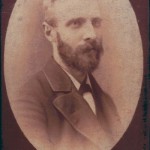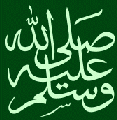-
The Rulings regarding touching the Mushaf
Categories : Fiqh, Qur'an
WARNING: unbalanced footnote start tag short code found.
If this warning is irrelevant, please disable the syntax validation feature in the dashboard under General settings > Footnote start and end short codes > Check for balanced shortcodes.
Unbalanced start tag short code found before:
“Dawud al-Dhahiri{/ref] and he used as an evidence the fact that the Prophet, may Allah bless him and grant him peace, wrote an ayah in his letter to the Caesar. Al-Hakam and Hammad permit the touching [of the mushaf] with the outside of the hand, because it is the inside of the hand that is normal…”
This means pure from both states of ritual impurity. This was narrated by Ibn ‘Umar, al-Hasan, ‘Ataa’, Tawus, Sh’abi, and al-Qasim bin Muhammad, and it is the opinion of Malik, al-Shafi’i, and the people of opinion.[ref]i.e. The school of Kufa, including Abdullah Ibn Mas’ud, Anas ibn Malik and Imam Abu Hanifa and his school.[/ref] We do not know of anybody who differs with them other than Dawud.[ref]Dawud al-Dhahiri{/ref] and he used as an evidence the fact that the Prophet, may Allah bless him and grant him peace, wrote an ayah in his letter to the Caesar. Al-Hakam and Hammad permit the touching [of the mushaf] with the outside of the hand, because it is the inside of the hand that is normally used for touching, so the prohibition applies to it and nothing else.
We have the saying of Allah, Exalted is He: “Nobody touches it except the purified.”[ref]al-Waqi’a 56: 79[/ref] We also have what the Prophet (Allah bless him and grant him peace) said in his letter to ‘Amr bin Hazm: ‘That nobody touches the Qur’an except for the pure.’[ref]Narrated by Imam Malik in his Muwatta, in the chapter ‘The command to have wudu for the one who touches the Qur’an’ from the Book of Qur’an (1/199) and by Imam al-Daraqutni (1/459)[/ref] This is a well-known letter, narrated by Abu ‘Ubeed in ‘Fadaail al-Qur’an’[ref]Virtues of the Qur’an[/ref] and others. It was also narrated by al-Athram. As for the ayah that the Prophet (Allah bless him and grant him peace) wrote [in his letter to the Caesar], this was done with the intention of correspondence, and an ayah that is included in a letter or a book of fiqh,[ref]Jurisprudence[/ref] or the like, is not forbidden to touch, and the book does not become a mushaf because of it, nor is any sanctity established for it. If it is established then it is impermissible to touch it with any part of the body, because any part of the body is similar to the hand. As for the opinion that the act of touching is restricted to the inside of the hand, this is incorrect. If any object comes into contact with another object this is considered touching.
Section: It is permitted to carry it with an attachment, and this is the opinion of Abu Hanifa, narrated from al-Hasan, ‘Ataa’, Tawus, Sh’abi, and al-Qasim, Abu Wa’il,[ref]Abu Wa’il Shaqiq ibn Salma al-Asadi al-Kufi, knew of the Prophet, may Allah bless him and grant him peace, but did not see him. This was narrated from Abu Bakr, ‘Umar, ‘Uthman, ‘Ali and many of the Companions and Successors, and it is reliable. Khalifah bin Khayyat said: “He died after the Jamajim in the year 82 AH. Al-Waqidi said: “He died during the caliphate of ‘Umar bin Abdul-‘Aziz. Tahdhib al-Tahdhib (4/361-363)[/ref] al-Hakam and Hammad. Al-Awzai’i, Malik and ash-Shafi’i prohibit it. Malik said: ‘The best of what I have heard is that one does not carry a mushaf with an attachment or in a cover except that he is pure, and this is not because he will dirty it, but rather in order to exalt the Qur’an.’ They argue that the mukallaf,[ref]Legally accountable by Shari’ah, and this is from the onset of puberty.[/ref] muhdith[ref]In a state of minor ritual impurity[/ref], intending to carry the mushaf, is not permitted to do so, as though he is carrying it with touching it. Our[ref]i.e the Hanbali school: “Our Imam is Abu Abdullah Ahmad bin Hanbal.” (al-Mughni I, p.5)[/ref] opinion is that he is not touching it, so it is not prohibited, as though he is carrying it in his luggage. This is because the prohibition only deals with touching, and carrying is not touching, so the prohibition does not concern it. Their analogy is wrong. The fundamental pretext is in regards to touching, and there is no derivative. There is also no narration concerning carrying, so it is not correct to use such an argument. Therefore, if one carries it with an attachment or with a barrier between him and it from what does not pertain to it in selling, it is permissible, as we have mentioned. Their opinion is that it is not permissible, and the standpoint of the two madhabs has been mentioned prior. It is also permissible to study [the Qur’an] with a stick and touch it with it, as it is to write the mushaf with one’s hand without touching it. With regard to studying it with a cover, there are two narrations. One narration, deduced by al-Qadi[ref]al-Qadi Abu Ya’la al-Baghdadi, one of the teachers of Shaikh-ul-Islam Ibn al-Jawzi, a giant of Hanbali fiqh. (RAH)[/ref], concerning touching [the mushaf] with a cover and carrying it with an attachment, is that it is impermissible, because one is touching with a cover. The correctview is that it is permissible, because the prohibition applies to touching, and carrying is not touching.
Section: It is permissible to touch books of tafsir[ref]Exegesis[/ref] and fiqh and so forth, and also letters, if they contain ayahs from the Qur’an. The evidence for this is that the Prophet (Allah bless him and grant him peace) included an ayah in his letter to the Caesar, and it was not called a mushaf nor was any sanctity established for it. Regarding youths in Qur’an schools and the tablets they use, there are two opinions. One states that it is permissible. This is because there is a need. If we stipulated purification it would make them averse to memorising [the Qur’an]. The other opinion is that it is impermissible because of the general application of the ayah. As for money that has Qur’anic ayahs written on it, there are two opinions. One is that it is prohibited, and this is the madhab of Abu Hanifa. It is makruh[ref]Reprehensible[/ref] according to ‘Ataa’, al-Qasim and ash-Sha’bi, because the Qur’an is written on it and it resembles paper. The other opinion is that it is permissible, because it is not called a mushaf and therefore it is similar to a book of fiqh. Also, it is difficult to avoid it, as is the case with the tablets that children use.
Section: If one in a state of minor ritual impurity wishes to touch the mushaf and there is no water, it is permissible for him to touch it after making tayyammum.[ref]Dry ablution[/ref] If the muhdith washes some parts of the body that are part of making wudu, it is not permissible for him to touch [the mushaf] until he completes his wudu, because he is not purified until he has completed it.
Section: It is not permissible to travel with the mushaf to Dar-al-Harb, as narrated by Ibn ‘Umar: The Prophet (Allah bless him and grant him peace) said: “Do not travel with the Qur’an to the lands of the enemy, out of fear that they may harm it with their hands.”[ref]Narrated by Bukhari in the chapter on travelling with musahif to the lands of the enemy, in the Book of Jihad, Sahih Bukhari (4/78), and Muslim, in the chapter on the prohibition to travel with the mushaf to the land of the disbelievers if it is feared that it will fall into their hands, from the Book of Authority, Sahih Muslim (3/1490,1491), and Abu Dawud, in the chapter on the mushaf; travelling with it to the land of the enemy, from the Book of Jihad, Sunan Abi Dawud (2/35), and Ibn Majah, in the chapter on the prohibition to travel with the Qur’an to the land of the enemy, Sunan Ibn Majah (2/961), and Imam Malik in the chapter on the prohibition to travel with the Qur’an to the land of the enemy, al-Muwatta (2/336), and Imam Ahmad in the Musnad (2/6,7,10,55,63,76,128) [/ref]
By Abu Ja’far al-Hanbali (www.htspub.com)
What may not have been considered in regard to this issue is the fact that allowing someone to touch the Qur’an without wudu purposely actually touches on theological issues. It has been said by some that as long as someone is a Muslim, touching the Qur’an with or without purification (i.e. wudu, ghusl) is acceptable and valid. However, the orthodox theologians and jurists have made ample mention that one is not to do this for the Qur’an is the Speech of Allah: “Say: O Humanity! Indeed I am the Messenger of Allah sent to all of you. By Allah Who has the dominion of the skies and the earth, there is no god but He. He gives life and death so believe in Allah and His Messenger, the unlettered Prophet, who believes in Allah and His Speech.” [al-‘A’raaf 7:158] and the Knowledge of Allah: “So whoever disputes with you about it, after the Knowledge has come to you.” [Aal Imran 3:61] So because of these verses we would understand that what we have in our hands is the Word of Allah as quoted by ‘Aisha, may Allah be pleased with her, Mother of the Believers: “What is between the two covers of the mushaf is the Speech of Allah.”[ref]al-Mughni v. 8 p.414, al-Musawada p.14, al-Furu’ v.5 p.383, al-Qawaid p.162, al-Muharrar v.2 p.54. All of them classify it as sahih.[ref]al-Mughni v. 8 p.414, al-Musawada p.14, al-Furu’ v.5 p.383, al-Qawaid p.162, al-Muharrar v.2 p.54. All of them classify it as sahih.[/ref]Imam Muwaffaq ud-Din ibn Qudamah t has mentioned regarding this most serious of fundamental theological beliefs of Muslim Orthodoxy: “Those who say that the book form of the Qur’an is only ink and documented pages, our answer would be: Then what is the use of the ayah: “Nobody touches it except the purified.”[al-Waqi’ah 56:79] while we are believing that the one who is forbidden from touching it is merely being told to abstain from touching merely ink and documented pages?!! And why is it that the one who swears by the mushaf must make expiation for doing so when he fails in his oath if it is only ink and documented pages. Whoever says that the mushaf is only ink and documented pages has made the mushaf and the diwan of ibn al-Hajjaj equal in status, so then both of them are merely ink and pages, making them equal, and whatever is equal in form is equal in judgement.[ref]Meaning that the respect for the Qur’an would be no more than the respect given to a book of poetry, or any other book.[/ref]
“The Muslims in totality have made consensus on exalting the mushaf and they have forbidden the one without wudu to touch it and that whoever should swear by it and break his oath must make an expiation. An expiation is not made on a mere created thing. So then respecting the Qur’an is a dominant feature. Its respect is to be given even in front of people and it may be that they stand up when it is brought and kiss it, and place it on their heads, as is the respect due to the Qur’an.”[ref]Al-Munadhira fil-Qur’an al-‘Adheem (Maktaba Ibn Taymiyyah, Kuwait, 1410 AH, 1990 AD) pp.84-86[/ref]
Therefore, in understanding all of this, it should be known that touching the Qur’an while not being in a state of ritual purity is impermissible and disrespectful. Those who purposely advocate touching it without ritual purity have opted for a position more dangerous than the Mu’tazilah, for while they believed in the blasphemy of the Qur’an being created they were nonetheless consistent in demanding that it not be touched except in a state of ritual purity.
Appendix II
[from the Muwatta of Imam Malik]
15 – The Book of the Qur’an
The Chapter on the command to have wudu’ for the one who touches the Qur’an
Yahya related to me from Malik, from ‘Abdullah ibn Abi Bakr ibn Hazm, that in the letter that the Messenger of Allah (Allah bless him and grant him peace) wrote to ‘Amr ibn Hazm: “That nobody but the purified touches the Qur’an.”
Malik said: “And one does not carry the mushaf with an attachment, nor on a pillow, except that he is purified. If that was permissible it could be carried in something that is hidden. This is not disliked due to the fact that the one carrying it may have something on his hands that will dirty the mushaf, but rather it is only disliked because the one carrying it is not purified, out of respect for the Qur’an and glorification of it.
Malik said: “The best of what I have heard regarding this ayah: “Nobody touches it except the purified”[ref] al-Waqi’a 56:79[/ref] is that it is of the same rank as the ayaat in ‘abasa wa tawallaa,[ref]80: 11-16[/ref] the words of Allah, Exalted and Majestic is He: “By no means, it is indeed a reminder and an admonition, whoever wills let him take heed and remember it, in honourable pages, exalted and purified from every error,[ref]This ayah is used as evidence by the Hanafis and other scholars that the mushaf should be kept in a high place[/ref] in the hands of pious righteous scribes.”[ref]This refers to the Companions as well as the angels. It should be remembered that angels are always pure.[/ref]




